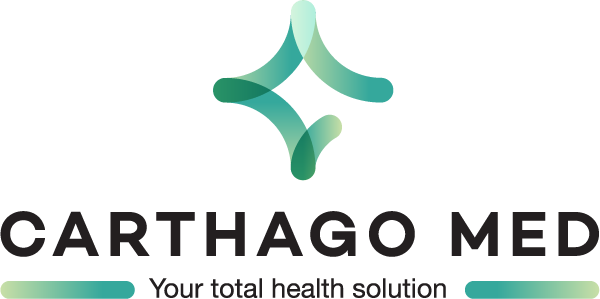
WHAT ARE THE ADVANTAGES OF SLEEVE GASTRECTOMY?
Nowadays, sleeve gastrectomy is one of the most widely practiced obesity surgery techniques in the world, along with gastric banding and gastric bypass. By undergoing this bariatric surgery and adopting a new lifestyle with meticulous rules, the results can be surprising, and you can shape a new body by losing a considerable amount of weight. Here are the main benefits of sleeve gastrectomy and its effect on your health.
What is sleeve gastrectomy?
This surgical procedure involves removing a large part of the stomach. The remains of the stomach will be shaped like a tube, the patient will consume smaller quantities during meals, and will reach a feeling of satiety more quickly. In addition, the secretion of hormones that cause the feeling of hunger will be reduced, so the patient will have much less appetite during the day. This procedure is intended for people who are obese and who have not been able to lose weight with more conventional methods, such as dieting or physical activity. However, it is a heavy and non-reversible operation, there is no going back once the operation is done (about 2/3 of the stomach will be permanently removed). Therefore, it is necessary to take a long period of reflection, and weigh the pros and cons, before carrying out this procedure.
What are the main advantages of sleeve gastrectomy?
Obesity is a problem that many people have to deal with, not only cosmetically, but also when all this extra weight causes illness. Thanks to procedures such as sleeve gastrectomy, it is now possible to remedy this situation effectively.
The following are some of the many advantages of sleeve surgery:
One of the key benefits is the substantial weight loss it facilitates; following the surgery and adhering to post-operative guidelines can lead to a remarkable reduction of up to 25 to 30 kilograms or even more within the initial 12 months. This drastic weight loss can significantly improve a patient’s overall health and well-being. Additionally, sleeve surgery leads to a notable decrease in hunger and appetite. The portion of the stomach responsible for producing ghrelin, the hormone responsible for triggering hunger, is removed during the procedure. Consequently, patients experience reduced cravings and are less inclined to indulge in excessive eating or snacking throughout the day.
Furthermore, sleeve surgery contributes to the reduction of obesity-related diseases. Conditions like diabetes, high blood pressure, cardiovascular diseases, and various other health issues are either directly or indirectly linked to obesity. For individuals who struggle to lose weight effectively through conventional methods like diet and exercise, bariatric surgery, including sleeve surgery, represents a crucial opportunity to address these obesity-related health concerns.
A notable advantage of sleeve surgery is its minimal impact on the digestive process. Unlike some other bariatric surgery techniques such as gastric bypass, where food pathways are altered, sleeve surgery allows food to be digested normally. This means that patients can continue to enjoy a regular diet without significant disruptions to their digestive functions. Additionally, the procedure boasts a low risk of complications. Sleeve surgery has become a well-established and commonly performed technique worldwide. Skilled surgeons can execute the procedure with precision, minimizing the chances of adverse events. While there are potential risks, such as the rare occurrence of fistula, selecting a highly experienced surgeon significantly reduces these risks, ensuring a safer surgical experience for patients. Overall, sleeve surgery offers a comprehensive and effective solution for individuals seeking substantial weight loss and improved overall health.
Does sleeve gastrectomy lead to a better quality of life?
Following bariatric surgery, you must follow very strict rules for your new lifestyle: a strictly supervised diet, regular physical activity, no snacking, and certain foods are totally banned from your diet…
In addition, you will have to make regular check-ups and be monitored by a nutritionist, who will ensure that your weight loss is progressing well and will evaluate your health month after month as soon as you leave the clinic. If you have the right mindset, these new commitments can be a great source of motivation to help you lead a healthier, more balanced life. You will feel better both physically and psychologically, you will feel better about yourself, and obesity-related health problems will be greatly reduced. However, it is important that you are well prepared mentally before the procedure, as the aftermath of the surgery will have to be faced with great seriousness and rigour, so that you can enjoy the results of the operation for many years to come.
Having a slender waist without undertaking hard diets
Achieving a slender waist without resorting to strict and challenging diets is a goal many aspire to. Fortunately, there are sustainable approaches that don’t involve extreme measures. One effective method is adopting a balanced and nutritious diet that focuses on whole foods, such as fruits, vegetables, lean proteins, and whole grains. Portion control plays a crucial role, allowing individuals to indulge in their favorite foods in moderation while maintaining a calorie deficit. Regular physical activity, including both cardiovascular exercises and strength training, further enhances the process. Additionally, embracing mindful eating practices, which involve paying close attention to hunger and fullness cues, can prevent overeating. Adequate sleep and stress management are equally important, as they impact hormonal balance and appetite regulation. By combining these strategies, individuals can achieve a slender waist and overall well-being without the need for extreme diets, promoting a sustainable and healthy lifestyle.
No extra device insertion in the body
The prospect of not having to undergo the insertion of any extra devices into the body is a significant relief for many individuals seeking medical interventions. In the realm of healthcare, advancements have led to innovative treatments and procedures that eliminate the need for additional devices. This not only reduces the discomfort and recovery time for patients but also minimizes the risks associated with invasive surgeries. Procedures like non-invasive laser therapies, targeted radiation treatments, and certain pharmacological interventions have made it possible to address various medical conditions without the necessity of implanting devices. This advancement not only improves the overall patient experience but also enhances the safety and effectiveness of medical treatments. Patients can now undergo treatments with confidence, knowing that they can benefit from medical advancements without the inconvenience or potential complications associated with device insertion. This shift toward non-invasive approaches represents a promising future for healthcare, emphasizing patient well-being and convenience in equal measure.
No functional disorder
The absence of functional disorders in the body signifies a state of optimal health and well-being. It implies that all physiological systems are operating harmoniously, without any disruptions or irregularities that could hinder daily activities or quality of life. Achieving a state of no functional disorder involves a combination of factors, including a balanced diet, regular exercise, and sufficient rest. Proper nutrition provides the body with essential nutrients, ensuring the smooth functioning of organs and systems. Regular physical activity not only strengthens the muscles and cardiovascular system but also supports mental health, reducing the risk of functional disorders related to stress and anxiety. Sufficient rest and sleep are equally crucial, allowing the body to repair and rejuvenate, further promoting optimal functionality.
Additionally, regular health check-ups and screenings play a vital role in preventing functional disorders. Early detection of potential issues enables timely intervention and management, preventing the development of severe conditions. Moreover, adopting stress management techniques, such as meditation and mindfulness, can contribute significantly to maintaining a functional disorder-free state. By prioritizing a holistic approach to health that encompasses physical, mental, and emotional well-being, individuals can enjoy a life free from functional disorders, ensuring a high quality of life and overall vitality.
Reducing the risk of weight-related health problem
Reducing the risk of weight-related health problems is paramount in ensuring a long, healthy life. Excess weight can significantly increase the likelihood of developing a myriad of health issues, including heart disease, diabetes, hypertension, and certain types of cancers. Adopting a balanced diet that is rich in whole foods, low in processed sugars and saturated fats, can be instrumental in maintaining a healthy weight. Regular physical activity is equally vital, not only for shedding excess pounds but also for improving cardiovascular health, boosting metabolism, and enhancing overall well-being.
Beyond diet and exercise, lifestyle modifications can also make a substantial difference. Managing stress through techniques like yoga, meditation, or hobbies can prevent emotional eating and curb weight gain. Sufficient sleep is often underestimated but plays a crucial role in regulating hormones that influence appetite and metabolism.
Medical guidance and regular check-ups are invaluable. Healthcare professionals can provide personalized advice, monitor progress, and address any underlying health conditions that might hinder weight loss efforts. Support systems, including friends, family, or support groups, can provide encouragement and motivation during the weight loss journey.
Fast recovery
Fast recovery is not just a concept; it embodies a profound transformation in the way we approach healing and rehabilitation. In the realm of medical advancements, the emphasis on swift recovery has revolutionized patient care. Innovative surgical techniques, less invasive procedures, and improved anesthesia have significantly reduced recovery times, allowing individuals to resume their normal lives far more quickly than before.
Additionally, personalized rehabilitation programs and targeted therapies cater to individual needs, ensuring that recovery is not only rapid but also tailored to the specific challenges a patient faces. The integration of technology, such as telemedicine and wearable devices, further facilitates quick recovery by enabling remote monitoring and timely adjustments to treatment plans.
Furthermore, a holistic approach to recovery encompasses not only physical healing but also mental and emotional well-being. Psychological support, counseling services, and mindfulness practices have proven to be invaluable in expediting recovery. When patients are mentally resilient and emotionally supported, they can cope better with the challenges of rehabilitation, leading to faster progress.
The notion of fast recovery is a testament to human ingenuity and compassion. It represents a commitment to not just treating ailments but restoring individuals to their fullest potential swiftly and effectively. With each passing day, medical science continues to refine its techniques, ensuring that the journey from illness to health is as swift and smooth as possible, allowing people to return to their lives with renewed vigor and vitality.
A big change in life quality and psychological status
Undergoing a significant change in life quality and psychological status is often transformative, marking a powerful journey toward mental and emotional well-being. This profound shift can result from various factors, including therapy, self-discovery, or even major life events. Therapy, both individual and group, offers a safe space for individuals to explore their thoughts and emotions, providing tools to cope with life’s challenges. Self-discovery, through practices like mindfulness and meditation, enables individuals to connect with their inner selves, fostering self-acceptance and emotional resilience.
Major life events, such as overcoming a personal crisis or achieving a long-sought goal, can drastically elevate life quality and psychological status. These events often challenge perspectives, encouraging personal growth and a reevaluation of life priorities. Embracing healthier lifestyles, including regular exercise, balanced nutrition, and adequate sleep, can significantly impact mental well-being. Additionally, building and nurturing meaningful relationships offer crucial emotional support, reducing feelings of isolation and enhancing overall life satisfaction.
Moreover, the willingness to seek help and the ability to adapt positively to change are fundamental. Accepting imperfections, practicing gratitude, and cultivating optimism can reshape one’s outlook on life. By embracing these changes and adopting a proactive approach to mental and emotional health, individuals can experience a remarkable transformation. It’s not just about overcoming challenges; it’s about emerging stronger, more resilient, and more appreciative of life, leading to a profound enhancement in both life quality and psychological status.









